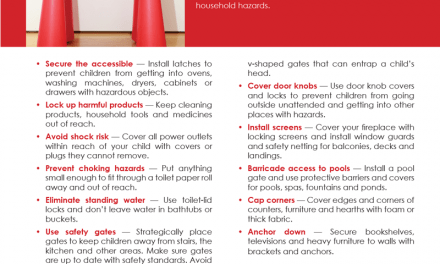Before applying for a California Bureau of Real Estate (CalBRE) salesperson license, be sure you’re eligible under CalBRE’s guidelines. If you’re already licensed, send this to friends or family who want to become licensed.
To obtain a California Bureau of Real Estate (CalBRE) salesperson license, an applicant needs to meet requirements regarding:
- age;
- criminal activity disclosure;
- pre-licensing education; and
- the state examination.
Minimum requirements
The minimum age for CalBRE license applicants is 18.
Out-of-state applicants may qualify for a CalBRE salesperson license.
Out-of-state applicants are to follow the same licensing requirements as California residents. However, in addition to standard prerequisites, they need to submit the following with their license application:
- a notarized form verifying their address and consenting to a service of process as an out-of-state applicant [CalBRE Form 235: Consent to Service of Process]; and
- if satisfying the fingerprinting requirement in a location outside of California, an FBI Applicant Fingerprint Card (provided by CalBRE with the license application).
Once licensed, out-of-state applicants may not engage in real estate activities in California unless they are employed by a CalBRE broker.
Disclosure of criminal activity
Applicants are required to disclose all prior criminal activity under penalty of perjury. CalBRE requires the disclosure of:
- any misdemeanor or felony criminal convictions, including military and foreign convictions;
- all pending criminal charges;
- pending disciplinary actions taken against a business, professional or occupational license currently held by the applicant; and
- whether the applicant has had a license in California or any other state denied, suspended, restricted or revoked. [CalBRE Form 229: Avoid Potential Denial of Your License Application]
Failure to disclose this information may result in denial of an application. [Calif. Business and Professions Code §475(a)(1)]
Past convictions do not automatically bar an applicant from receiving a license. However, CalBRE reserves the right to reject an application due to criminal activity substantially related to the functions, qualifications and duties of a licensee. [CalBRE Regs §2910]
A crime is substantially related to the qualifications of a licensee if it involves:
- fraudulently taking funds or property belonging to another person;
- counterfeiting or forging an instrument;
- the nonpayment or underpayment of state, federal or local taxes;
- using bribery, fraud, deceit or misrepresentation for one’s own end;
- sexual conduct affecting a nonconsenting person or observer;
- willfully violating any CalBRE regulation;
- willfully engaging in licensed business without obtaining a license, permit or other entitlement;
- unlawful acts with the intent to gain financial or economic benefits, or to substantially injure a person or property;
- failure to comply with a court order;
- repeated and willful disregard for the law; or
- two or more convictions involving the consumption or use of alcohol or drugs when at least one of those convictions involves driving under the influence. [CalBRE Regs §2910]
Examples of convictions that frequently disqualify applicants from receiving a salesperson license include, but are not limited to:
- embezzlement;
- fraud;
- violent crimes, such as murder or assault;
- perjury;
- grand theft;
- forgery; and
- tax evasion.
If CalBRE finds an applicant has committed any of these violations, they will recommend denial of the license. However, when assessing an applicant’s criminal activity, CalBRE does consider the applicant’s rehabilitation efforts, such as:
- restitutions paid to someone who suffered a loss from the applicant’s acts;
- payments of fines and penalties;
- completion of, or continued enrollment in, courses for economic self-improvement; and
- whether two years have passed since the most recent criminal conviction. [CalBRE Regs §2911]
Keep in mind: as applicants are subject to CalBRE’s individual assessment, acceptance of an application depends on the particular information provided by each applicant.
Tax and child support restrictions
Further, applicants are not eligible for a real estate salesperson license if they:
- failed to make child support payments [Bus & P C §490.5]; or
- have outstanding Franchise Tax Board (FTB) or State Board of Equalization (SBOE) tax obligations exceeding $100,000. [Bus & P C §494.5(b)]
If an applicant is delinquent in child support payments but otherwise qualifies for a salesperson license, CalBRE may issue a temporary 150-day license. However, CalBRE requires clearance from the Department of Child Support Services within 150 days, and charges the applicant a $95 processing fee for the temporary license. [CalBRE Regs §2716.5]
An applicant who is ineligible for a salesperson license due to outstanding tax obligations may also receive a temporary license. The temporary license gives the applicant 90 days to satisfy their debt. If CalBRE does not receive a release from the FTB or SBOE confirming the applicant’s payment, CalBRE will revoke the license. Applicants are not entitled to a refund of application fees. [Bus & P C §§494.5(g)]
Pre-licensing education
Applicants are not eligible for a salesperson license until they have completed all pre-licensing education requirements. CalBRE requires the completion of three college-level courses:
- Real Estate Principles;
- Real Estate Practice; and
- one elective course. [Bus & P C §10151(c)]
Related article: CalBRE: Requirements to Apply for a Real Estate Salesperson License
These courses need to be three semester-units or four quarter-units, and completed at either:
- a college or university accredited by the Western Association of Schools and Colleges (WASC) or other accrediting agency recognized by the U.S. Department of Education; or
- a private real estate school which has had its courses approved by CalBRE.
Editor’s note — Need to complete your licensing courses? Enroll in first tuesday’s salesperson licensing package here.
CalBRE accepts courses taken with out-of-state colleges and universities as long as the college or university is accredited by the WASC or other accrediting agency.
An applicant may also submit courses completed at a college or university outside of the U.S. However, the courses need to be evaluated first by a foreign credentials evaluation service approved by CalBRE. [CalBRE Form 223: Examination Applicant Foreign Education Information]
To submit licensing courses, applicants need to have copies of transcripts or certificates that indicate completion of each course.
Members of the California State Bar are exempt from the pre-licensing education requirements. Applicants who are members of the bar are to photocopy both sides of their California State Bar membership card and send it with their CalBRE license application. [Bus & P C §10151(d)(1)]
Passing the exam
The last step in obtaining a CalBRE salesperson license is the state exam.
To apply for the state exam, applicants need to submit:
- an exam application;
- proof that they have completed the statutory courses; and
- a $60 application fee. [CalBRE Form 400a: Salesperson Exam Application]
After CalBRE receives the exam application, the applicant has two years to pass the state exam. If they do not pass the exam in this two-year period, they are required to submit another application with the course documents and exam fee.
Once CalBRE processes the application, applicants may schedule an exam date in one of the following locations:
- Fresno;
- Los Angeles;
- Oakland;
- Sacramento; or
- San Diego.
The state exam covers the following key concepts:
- Property Ownership and Land Use Controls and Regulations
- Laws of Agency and Fiduciary Duties
- Property Valuation and Financial Analysis
- Financing
- Transfer of Property
- Practice of Real Estate and Disclosures
- Contracts
The exam is timed and consists of 150 multiple-choice questions. Applicants have three hours and 15 minutes to complete it. To pass the exam, an applicant needs a score of 70% or higher.
CalBRE is diligent about preventing applicants from subverting or cheating on the state exam. If an applicant violates any of the exam rules, CalBRE may bar them from taking an exam or holding a real estate license for up to three years. [Bus & P C §10153.01]
While not required, many applicants prefer to attend a crash course before the exam to improve their understanding of the material and highlight key concepts that appear on the state exam.
If you need additional study tools, sign up for our online video crash course or our affiliated live crash course.
Have questions about the licensing process? Call our customer service line at 951.781.7300. Our hours of operation are 8:30 am-5:00 pm PST, Monday through Friday.
Other related articles:
Infographic: Becoming A Sales Agent (separate exam and license apps)
Infographic: Becoming A Sales Agent (combined exam and license apps)
A quick guide for veterans: obtaining a California Bureau of Real Estate (CalBRE) license


















